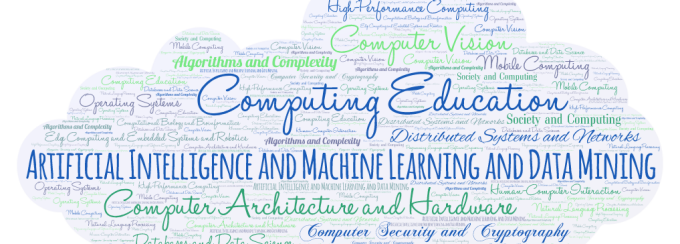- Department of Computer Science and Engineering >
- Research >
- Research Areas >
- Edge Computing and Embedded Systems and Robotics
Research Areas
Word cloud describing CSE research areas. The relative relative word sizes represent the number of faculty working in each area. Photo credit: Christian Miller
Hardware and software co-design on embedded/ASIC computing performance optimization.



















